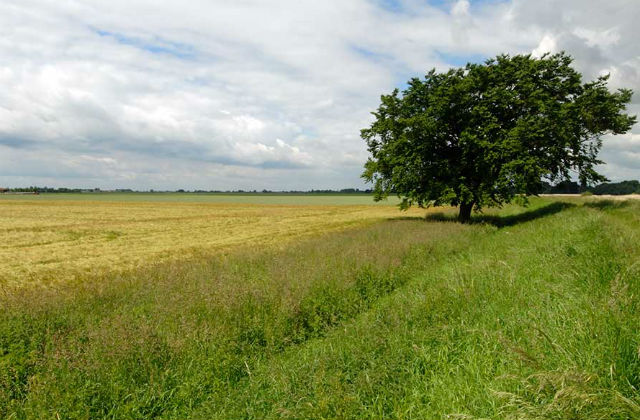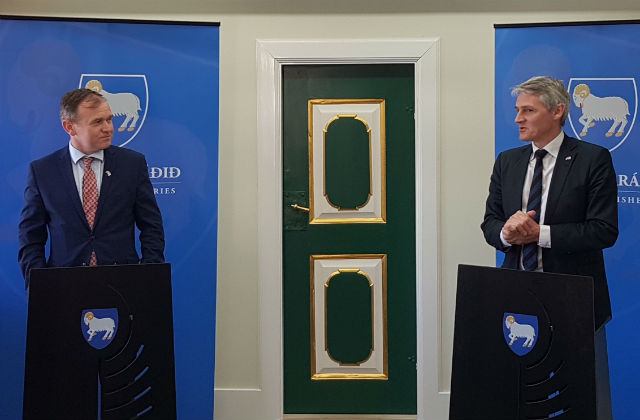Kia Oval leads the way for single-use plastic-free sports grounds

Surrey Country Cricket Club has today announced plans to make the Kia Oval a single-use plastic-free ground by 2020.
The pledge follows a number of recent announcements by Surrey for the 2018 season, including a ban on plastic straws being used in the ground, the introduction of compostable coffee cups and the phasing out of plastic bags in the club shop.
2018 will also see the introduction of recyclable and reusable glasses in Members' and hospitality areas of the ground.
The announcement comes just days after Environment Minister Michael Gove called on the sports industry to rally together in reducing plastic pollution in our oceans. The Environment Secretary joined representatives from Premier League football, swimming and ocean sailing to look at how the sector can use its influence to tackle the use of plastics in sport and bring about global change.
Environment Secretary Michael Gove said:
Plastic pollution is one of the most pressing environmental challenges of our time and we all have a role to play to tackle the threats our oceans face.
There are few groups which have the global reach and power the sports sector does to inspire change and mobilise action. The industry is already making great strides, and I look forward to seeing how they can build on this progress to be true ambassadors for global change.
Farming: The Backbone of Britain

Today, 20 April, Farmers Guardian launched a new campaign called ‘Farming: The Backbone of Britain’. The campaign celebrates Britain’s farming industry and highlights the vital role that farmers and their families play in keeping the UK’s rural areas thriving.
Environment Secretary Michael Gove has given his support to the campaign in an interview with the magazine, published today. He said:
It is farmers who produce the food we eat to keep us healthy and provide the opportunity for people to get together as a family around the kitchen table.
Farmers are the backbone of the country and the fact Farmers Guardian is leading this campaign to remind us how much we owe farmers is to be hugely welcomed.
To read more about the campaign please see the Farmers Guardian website.
Fisheries visit bolsters UK-Faroe Islands relations

UK Fisheries Minister George Eustice visited the Faroe Islands this week to strengthen existing relations between the two countries and learn more about the Faroese approach to domestic fisheries management.
The UK is a key trading partner for the islands, accounting for around 10% of their total fishing exports. The Faroese are also a key partner for the UK in the management of fisheries in the north east Atlantic.
George Eustice met his Faroese counterpart Minister of Fisheries and Deputy Prime Minister, Høgni Hoydal, as well as the Faroese Prime Minister, Aksel V. Johannesen, during the two-day trip.
Minister Eustice also saw examples of innovation in the Faroese fishing and seafood sectors, visiting the Faroes’ largest fish processing plant, Kósin Seafood, and the headquarters of the Faroes’ largest salmon producer, the Bakkafrost Group.
Minister Eustice said:
This has been an extremely enlightening visit and I’ve learnt a lot about the Faroese approach to domestic fisheries management, including how the seafood processing and salmon farming industries operate here.
It has been particularly interesting to see and hear about the Faroese approach to fishing sustainably, something which the UK Government is committed to doing as we leave the European Union.
Salisbury recovery
This week Defra held targeted stakeholder briefing sessions with local community and the media in Salisbury to provide an update on our plans for decontamination work in the city. The session provided an opportunity for attendees to hear from an expert panel, including Defra Chief Scientist Ian Boyd, and ask questions about the process.
When announcing the decontamination plans earlier in the week, Ian Boyd said:
Our approach is based on the best scientific evidence and advice to ensure decontamination is carried out in a thorough and careful way. Our number one priority is making these sites safe for the public, so they can be returned to use for the people of Salisbury.
Thanks to detailed information gathered during the police’s investigation, and our scientific understanding of how the agent works and is spread, we have been able to categorise the likely level of contamination at each site and are drawing up tailored plans.
Meticulous work is required and we expect it will be a number of months before all sites are fully reopened.
As Public Health England have stated, Salisbury is safe for residents and visitors. All work undertaken on each site will take appropriate measures to ensure that there is no additional risk to the public. The cordons that are in place in the city are there to protect the public from any potential risk and there is no need for residents to take any extra precautions.